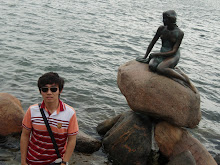Admittedly, the workload of this course is beyond my expectation and I put a lot of efforts in this module. But if anyone asks me whether I regret my choice or not, I will tell him with confidence that “ABSOLUTELY NOT!”
Firstly, I like the small class size so that students can interact with each other during the class. Also, we were able to discuss with issues with Brad directly and I think this is fantastic experience for me!
Secondly, I especially find the application letter and resume as well as mock job interview very helpful. Nobody really told me how to write a proper application letter and resume before. However, through this course, I was able to know the basic elements that should be included in a resume and application letter as well as how to have a neat and eye-catching format. Moreover, the job mock interview was so much fun because we not only had to be interviewers but also interviewees. As a result, I was able to experience what an interviewer expected to hear during the interview, which I think is very beneficial to my future interview experience.
Last but not least, from the final project, I understood what a real professional presentation should look like. For science students, I think there is a tendency that we pay more attention to the academic aspects of the presentation. Rather, I believe how to catch audiences’ attention and express our idea effectively and clearly is more essential.
Overall, I strongly believe that what I have learnt in this module will benefit me for my whole life!
Good luck to your exams!!!
